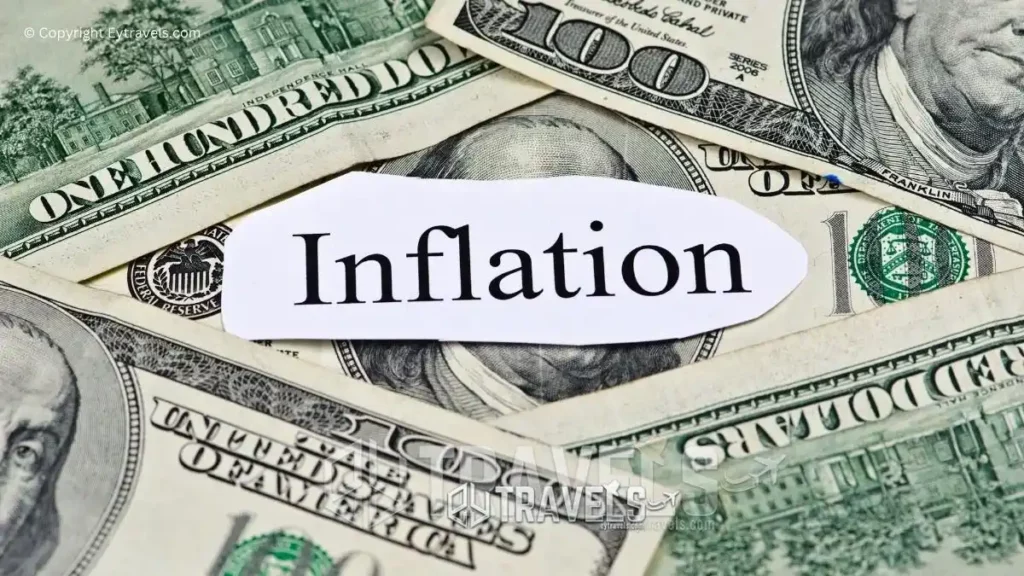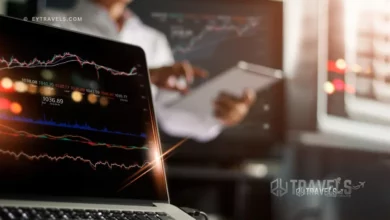What is Inflation in Economics?
Why is Everything Getting More Expensive? It's All About Inflation!
Inflation is a term that is frequently used in discussions about economics and the overall state of the economy. It refers to the increase in the price of goods and services over a period of time. This can result in a decrease in the purchasing power of individuals and can have significant consequences for various aspects of the economy. In this article, we will delve deeper into the concept of inflation, its causes, effects, and how it is measured.
Table Of Contents
- What is Inflation?
- Causes of Inflation
- Effects of Inflation
- Inflation and Price Changes
- Deflation and its Relationship with Inflation
- How to Measure Inflation?
- FAQs: What is inflation in economics?
- Q: How is inflation measured?
- Q: What factors can affect inflation?
- Q: What is the Consumer Price Index (CPI)?
- Q: How do interest rates relate to inflation?
- Q: What does inflation mean for consumers?
- Q: What are the main causes of inflation?
- Q: What is underlying inflation?
- Q: What is hyperinflation?
- Q: How does inflation affect the cost of living?
What is Inflation?
Definition of Inflation
Inflation is a general increase in the price level of goods and services in an economy over a specific period of time. It is essentially a situation where there is too much money chasing too few goods, leading to an imbalance in supply and demand, which in turn drives up prices.
How is Inflation Measured?
Inflation is measured using various economic indicators. One of the most commonly used indicators is the Consumer Price Index (CPI). The CPI measures changes in the prices of a basket of goods and services that are representative of what a typical household in an economy consumes. By tracking the price changes of these goods and services over time, economists can calculate the rate of inflation.
Consumer Price Index (CPI)
The Consumer Price Index (CPI) is a measure of inflation that is widely used by economists and policymakers. It is calculated by compiling price data for a predetermined basket of goods and services and then comparing it to a base period. The percentage change in the CPI over time indicates the rate of inflation.
Causes of Inflation
Primary Causes of Inflation

There are several primary causes of inflation. One of the main causes is the increase in the money supply within an economy. When there is more money in circulation, individuals and businesses have more purchasing power, which can drive up the demand for goods and services. This increase in demand can then lead to price increases.
Underlying Factors Contributing to Inflation
There are also underlying factors that contribute to inflation. These can include cost-push inflation, where an increase in the cost of production results in higher prices for goods and services. Additionally, demand-pull inflation occurs when there is excess demand for goods and services, leading to upward pressure on prices.
Demand-Pull Inflation
Demand-pull inflation happens when there is an increase in consumer spending or business investment, resulting in a rise in aggregate demand. This increased demand can outpace the economy's ability to produce goods and services, leading to upward pressure on prices.
Effects of Inflation
Impact of Inflation on Purchasing Power
Inflation can have a significant impact on purchasing power. When prices rise, the same amount of money can purchase fewer goods and services. This reduces the real value of individuals' incomes and can lead to a decrease in their standard of living.
Effects of Inflation on Interest Rates
Inflation also has effects on interest rates. When inflation is high, lenders typically increase interest rates to compensate for the decrease in the purchasing power of the money they will be repaid. This can make borrowing more expensive and can have negative implications for individuals and businesses.
Consequences of Inflation on Unemployment
Inflation can also have consequences on unemployment. When prices rise, businesses may experience higher production costs, which could result in layoffs or reduced hiring. Additionally, inflation can erode workers' wages if they do not increase at the same rate as the increase in prices, leading to a decline in purchasing power.
Inflation and Price Changes
Price Level and Inflation

Inflation directly influences the price level of goods and services. As inflation occurs, the general price level in the economy rises. This means that individuals and businesses need to pay more for the same goods and services they consumed previously.
Inflation's Influence on Prices of Goods and Services
Inflation affects the prices of goods and services in different ways. Some products may experience larger price increases than others, depending on their demand, supply, and various other factors. This can result in changes in the relative prices of different goods and services within the economy.
Central Bank's Role in Controlling Inflation
The central bank plays a crucial role in controlling inflation. It can adjust interest rates and implement monetary policy measures to influence the supply of money in the economy. By managing the money supply, the central bank aims to stabilize prices and keep inflation at manageable levels.
Deflation and its Relationship with Inflation
Understanding Deflation
Deflation is the opposite of inflation. It refers to a general decrease in the price level of goods and services, resulting in a rise in the purchasing power of individuals. Deflation can occur when there is a decrease in the money supply, a decrease in demand, or an increase in productivity that outpaces growth in the economy.
Effects of Deflation on the Economy
Deflation can have both positive and negative effects on the economy. On one hand, it can increase the purchasing power of individuals and lead to lower borrowing costs. On the other hand, it can also result in reduced consumer spending, lower business profits, and increased debt burdens.
Comparison of Deflation and Inflation
Deflation and inflation are two contrasting economic conditions. While inflation erodes the purchasing power of money, deflation increases it. Inflation is generally seen as a sign of a growing economy, while deflation can be an indicator of economic stagnation or recession.
How to Measure Inflation?
Inflation Rate Calculation
The inflation rate is calculated by comparing the current price level of a basket of goods and services to a previous period. The percentage change in the price level over time indicates the rate of inflation.
Consumer Price Index (CPI)
The Consumer Price Index (CPI) is a widely used measure of inflation. It tracks the average price change of a basket of goods and services consumed by households. By comparing the current CPI to a base period, economists can determine the rate of inflation.
Expenditure on Goods and Services
Expenditure on goods and services is another method used to measure inflation. By tracking changes in consumer spending patterns and the prices of the goods and services consumed, economists can estimate the rate of inflation.
FAQs: What is inflation in economics?
A: Inflation in economics refers to the sustained increase in the general price level of goods and services over a period of time.
Q: How is inflation measured?
A: Inflation is typically measured using various economic indicators, such as the Consumer Price Index (CPI), which tracks the average price change of a basket of goods and services over time.
Q: What factors can affect inflation?
A: Inflation can be affected by a variety of factors, including changes in the overall supply and demand for goods and services, fluctuations in currency exchange rates, and shifts in government fiscal and monetary policies.
Q: What is the Consumer Price Index (CPI)?
A: The Consumer Price Index (CPI) is a widely used measure of inflation that tracks the average price change of a specific basket of goods and services typically consumed by urban households.
Q: How do interest rates relate to inflation?
A: Interest rates and inflation are often closely related. When inflation is high, central banks may raise interest rates to control it, as higher interest rates can curb spending and reduce the money supply.
Q: What does inflation mean for consumers?
A: Inflation means that the prices of products and services are increasing over time. This can erode the purchasing power of consumers' income, leading to a decrease in the standard of living.
Q: What are the main causes of inflation?
A: The main causes of inflation vary, but commonly include factors such as excess demand for goods and services, increases in production costs, changes in government policies, and changes in the money supply.
Q: What is underlying inflation?
A: Underlying inflation refers to the rate of inflation after excluding certain volatile elements, such as food and energy prices, to provide a better measure of long-term price trends.
Q: What is hyperinflation?
A: Hyperinflation is an extremely high and typically accelerating inflation. It is often characterized by very rapid increases in the general price level, making money nearly worthless and resulting in severe economic instability.
Q: How does inflation affect the cost of living?
A: Inflation directly affects the cost of living as it leads to rising prices for goods and services. As the general price level increases, it requires more money to maintain the same standard of living.







🌐 Explore the economics of adventure! “What is Inflation in Economics?” unpacks the rise in prices and its impact. 📈 Dive in at:
.
.
.
https://www.eytravels.com/what-is-inflation-in-economics/
Ready for a knowledge boost? Hit follow, like, and let’s unravel the mysteries of the economy together! 👍🔍
#eytravels #EconomicInsights #InflationExplained #MoneyMatters #Finance101 #ExploreKnowledge #WanderlustIntellect #FollowForUpdates